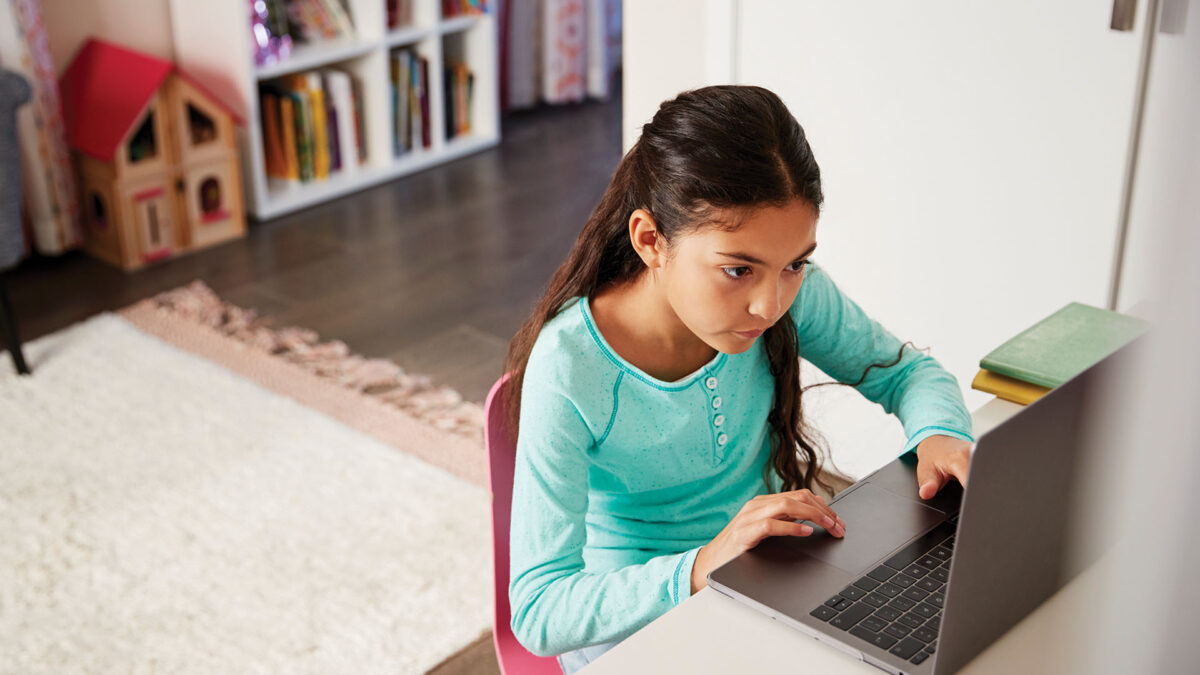Spending the first moments of each day in a spirit of gratitude can create a less stressful environment for the whole day.

We invited Dr. Kiti Freier Randall, a renowned pediatric neurodevelopmental psychologist who serves as director of Psychological Services for the Department of Pediatrics at Loma Linda University Health Care, to help us with this question.—Doctors.
With stay-at-home mandates, teleworking, and children doing school (and everything else!) from home, how can we prevent screen and device use from becoming even more addictive?
Viewing content must be monitored and limited. Particularly now, screentime should be used for two primary purposes: at-home schooling and to build on healthy relationships. Other uses should be restricted to no more than one hour per day for children 2-5 years old, and no more than two hours per day for those 6 years and older. Also, no screentime during meals and at least 90 minutes before bed is recommended because of its impact on metabolism and sleep. For families who already have children with technology addiction, a helpful resource is Reset Your Child’s Brain, by Victoria Dunckley.*
Plenty of rest, eating well, and drinking lots of water will boost immune and mental health and resilience. Patterned movement (exercise, not just activity) is a powerful alternative to “techno-isolationism” in young families and critical to immune health. Engaging with our children in jumping jacks, skipping rope, or animal races (hopping, crawling) will benefit both them and ourselves.
Routine is critical for our well-being. God gave us a world of routine (weekly/seasonal cycles). Despite the disruption, self-impose a schedule as close to your regular routine as possible. This is particularly important for children; they need to “trust” their environment. Having a routine provides them with the expectation of how things will go, and they won’t want to “test the limits” as often. Include time with parents or older siblings for arts and crafts, storytelling, and music. Develop the schedule together with the family so they’re clear on new expectations.
Service is another area that boosts immune health and builds resiliency. Be creative as to what service looks like during a stay-at-home mandate. Cleaning your children’s closet/room with them, making donation boxes, sending self-made cards and letters to family and friends (particularly seniors), calling grandparents, helping with household activities—all these things, when done together with parents, provide a boost to well-being.
One of the most impactful elements on immune health and resiliency is that of gratitude. Spending the first moments of each day in a spirit of gratitude can create a less stressful environment for the whole day.
Finally, the key to curbing an appetite for technology and building resiliency and our immune system for all of us is relationship! How do we do that while keeping social distance—which is critical in our global battle with the coronavirus? Words are powerful; please keep a physical social distance (six feet, or two meters), but maintain social support and emotional connection. Let’s be even more mindful now that as a family we can send a prayer, smile, letter/card, e-mail, phone call, video, or social media contact. Let’s keep one another supported in healthy relationships.
Most important, make your family’s priority the transforming relationship with our Divine Healer.
* Victoria L. Dunckley, M.D., Reset Your Child’s Brain (Novato, Calif.: New World Library, 2015).








